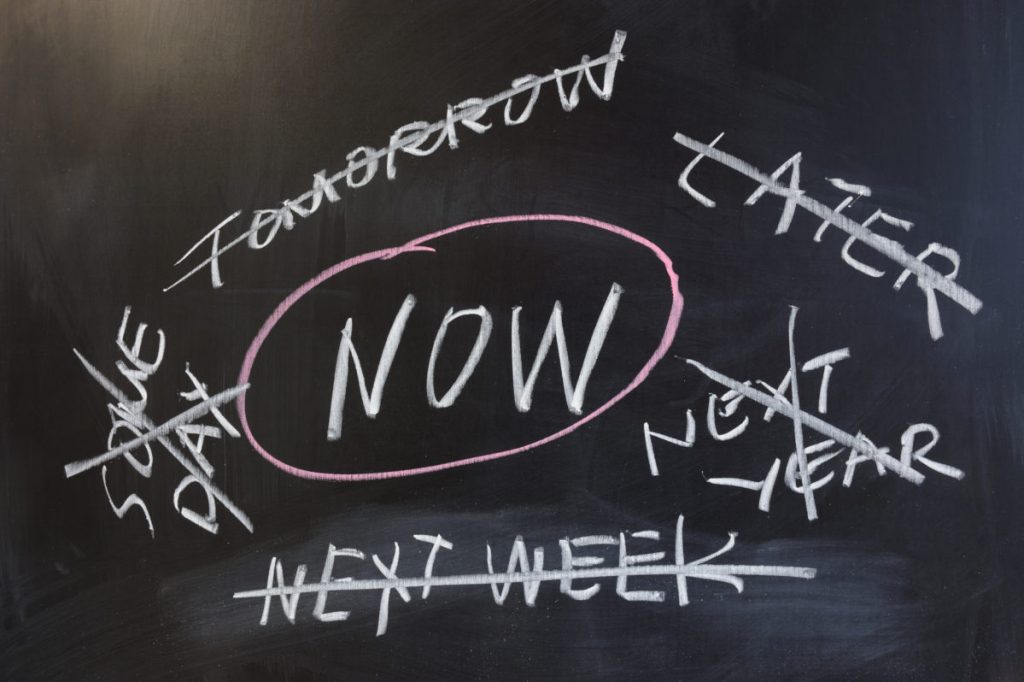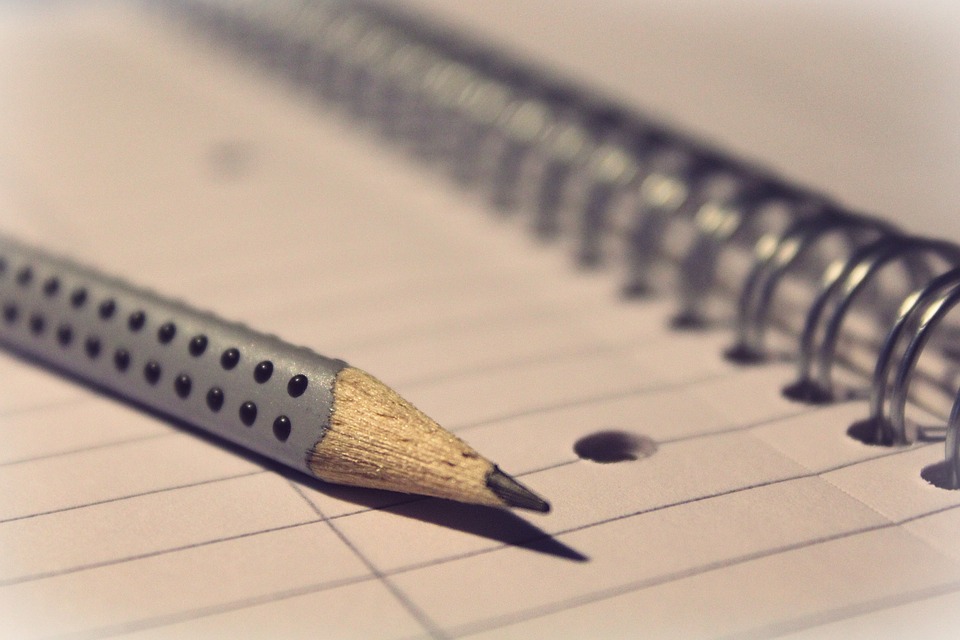Hoy en día tenemos tantas cosas que hacer y tan poco tiempo que frecuentemente nos sentimos sobrepasados y estresados; por otro lado, vemos personas que son capaces de conciliar todos los aspectos de su vida con facilidad; trabajo, familia, amigos, ejercicio físico u otras aficiones. “¿Cómo lo hacen?” solemos preguntarnos.
Pero el hecho es que estas personas disponen exactamente del mismo tiempo que nosotros: veinticuatro horas al día. Así que veamos algunos consejos prácticos para aprovechar ese tiempo al máximo.
1. Invierte tiempo en planificar

Cuando estamos muy ocupados, “malgastar” tiempo en algo como planificar puede parecer contrario al sentido común (como si no tuviésemos ya bastantes cosas que hacer); sin embargo, invertir unos minutos en fijar objetivos y planificar tus tareas es una gran ayuda para incrementar tus niveles de concentración, mantener la procrastinación a raya y centrar tus esfuerzos en aquello que es verdaderamente importante. Hablando de eso…
2. Distingue entre lo importante y lo urgente

Normalmente, nuestros días están plagados de distracciones; llamadas, emails, tareas pendientes, etc. Por lo general, y de forma automática, “reaccionamos” ante estas tareas y tratamos de completarlas porque se presentan justo delante de nosotros pidiendo nuestra atención. Es por ello que rara vez nos tomamos el tiempo necesario para evaluar si estas tareas son realmente importantes o sólo lo parecen; y deberíamos hacerlo, ya que esas cosas de menor importancia consumen un tiempo y energía que podríamos estar invirtiendo en algo realmente importante.
Analizar lo que hacemos cada día y distinguir entre aquello que es importante y aquellas cosas que hacemos solo porque pensamos que “tenemos que hacerlas” nos ayudará a priorizar, rechazar y/o delegar tareas que no son verdaderamente cruciales para nosotros y concentrarnos en hacer las cosas que de verdad importan.
3. Detecta tus malos hábitos
Todos tenemos hábitos que nos dificultan aprovechar nuestro tiempo de la manera más efectiva possible: comprobar constantemente nuestro teléfono, e-mail o perfiles en redes sociales, tomar demasiados descansos para fumar o beber café, ocupar el tiempo en tareas insignificantes para evitar hacer aquella tarea importante que has estado posponiendo, etc.
El problema de estos hábitos es que se vuelven automáticos: los llevamos a cabo sin pensarlo conscientemente. Por eso se llaman “hábitos”. El primer paso para romper esos automatismos es identificarlos, ya sea por nosotros mismos o pidiendo ayuda a alguien; haciendo eso, nos damos a nosotros mismos la posibilidad de hacer algo para corregir estos hábitos y usar mejor el tiempo del que disponemos.
4. Gestiona tu energía

Nuestros niveles de energía varían a lo largo del día: hay horas en las que nos sentimos más activos y con más energía, mientras que en otros momentos nos sentimos cansados o incluso somnolientos. Si identificamos las horas en las que nuestra energía está en sus más altas cotas y asignamos nuestras tareas más exigentes a esas horas siempre que sea posible, nos aseguramos de que invertiremos la mayor cantidad de energía posible en esas tareas. Y hablando de gestionar nuestra energía…
5. Planifica descansos cortos

¿Te ha pasado alguna vez que, a pesar de dedicar mucho tiempo y esfuerzo a una tarea, no pareces avanzar nada? Si la respuesta es sí, no debes preocuparte: significa que eres una persona normal.
Como humanos que somos, nuestra capacidad de concentración es limitada: cuanto más tiempo dedicamos a una tarea sin descansar, más cansados estamos y menos eficaces somos. Cuando estamos en ese punto, en lugar de presionarnos para terminar, resulta más efectivo tomarnos unos minutos para estirarnos, caminar un poco, o charlar con algún compañero. Pueden parecer una pérdida de tiempo, pero estos pequeños descansos tienen un gran beneficio: cambian tu foco de atención hacia otras cosas y te ayudan a despejarte y refrescarte, lo que te ayuda a volver posteriormente a la tarea con energías renovadas y de manera más efectiva.
¿Por qué propongo planificar estos descansos? Para no olvidarnos de tomárnoslos. Podría ser una gran idea programar un descanso de 5-10 minutos cada hora y media, por ejemplo, para reponer energías. La frecuencia y duración ideal de estos descansos depende en gran medida de cada persona, así que la mejor forma de proceder en este caso es experimentar hasta encontrar la proporción ideal.
6. Lleva un bloc de notas

O tu tablet. O una aplicación de notas en tu smartphone. La idea es tener algún sitio donde apuntar de todo, desde tareas que acabas de recordar que tenías que hacer a ideas que se te ocurren y quieres desarrollar.
Hacer esto tiene dos beneficios: por un lado, no olvidarás estas tareas o ideas porque están escritas en papel o formato digital (mientras que aquello que no escribes puede, muy fácilmente, caer en el olvido), y por otro lado, una vez apuntas una tarea, puedes planificar el tiempo que vas a dedicarle y volver a dedicar toda tu concentración y energía a aquello que estabas hacienda en ese momento. Y hablando de eso…
7. Concéntrate y atiende al presente

Vivimos en la época de la multitarea: vemos a aquellas personas que parecen capaces de hacer varias cosas a la vez como el pináculo de la productividad humana. Sin embargo, tal y como sugiere la evidencia científica hasta la fecha, la multitarea te hace menos productivo: saltar constantemente de una tarea a otra lleva en realidad más tiempo y aumenta el número de errores en dichas tareas.
Entonces, ¿cómo podemos ser productivos cuando tenemos tantas cosas que hacer?
En realidad, poner toda nuestra atención en una tarea nos ayuda a realizarla mejor y en menos tiempo; una vez terminamos, ponemos toda nuestra atención en la siguiente tarea, y hacemos lo mismo con todas nuestras tareas. De este modo veremos aumentar tanto nuestra productividad como la calidad de nuestro trabajo.
Además os aconsejaría estar siempre presentes, independientemente de lo que estéis hacienda: si estáis trabajando, poned en ello toda vuestra atención; si estáis con vuestra familia, prestadle toda vuestra atención también. Centrarnos en el presente es una de las mejores formas de usar nuestro tiempo sabia y eficazmente.
Espero que estos consejos os ayuden a hacer un mejor uso de vuestro tiempo, y que esto a su vez os ayude a lograr vuestras metas y realizar vuestros sueños, tanto en la esfera personal como en la profesional. El tiempo es una de nuestras más valiosas posesiones, y saber cómo invertirlo es una de las claves para llevar la vida que realmente queremos vivir.
